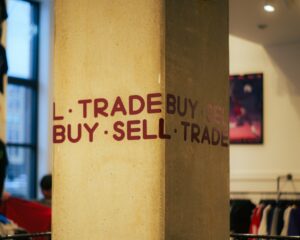Top 6 Shocking Revelations from Netflix’s ‘Eat the Rich’ GameStop Documentary

Explore the six most surprising revelations from Netflix’s ‘Eat the Rich’ documentary on the GameStop short squeeze and its financial ramifications.
1. The Controversial Post That Ignited the Frenzy
In January 2021, Alvan Chow, a retail investor and active member of the Reddit community r/wallstreetbets, ignited the GameStop short squeeze with a provocative post. Drawing parallels to the David and Goliath story, Chow positioned retail investors against Wall Street hedge funds. He highlighted that approximately 140% of GameStop’s shares were shorted, a figure astronomically higher than the typical 7-10%, setting the stage for a dramatic short squeeze. This bold move galvanized thousands of retail investors to buy GameStop shares aggressively, aiming to amplify the stock price and challenge the dominance of institutional investors.
2. The Unexpected Surge in Stock Price
GameStop’s stock price began its meteoric rise following significant investments from key figures like Ryan Cohen, CEO of Chewy, who bought over 6 million shares. His public endorsement and subsequent appointment to the GameStop board spurred confidence among retail investors. By January 2021, the stock surged from around $8 to the 30s, significantly surpassing traditional short squeeze outcomes. This explosive growth attracted even more participants from the Reddit community and beyond, exponentially increasing trading volumes and intensifying the financial impact on short sellers.
3. Andrew Left: The Short Seller Caught in the Crossfire
Andrew Left, the voice behind Citron Research, initially dismissed the potential for a GameStop short squeeze. His outspoken criticism and short position against GameStop made him a target within the r/wallstreetbets community. Despite his attempts to downplay the retail investors’ efforts, Left found himself on the receiving end of personal attacks, including hacked social media accounts and defamatory online profiles. His experience underscores the fierce resistance from established financial entities when confronted by the collective power of retail investors.
4. GameStop’s Rise to (In)fame Across Social Platforms
The GameStop saga transcended traditional financial arenas, permeating social media platforms like Instagram, YouTube, and TikTok. Influencers like Matt Kohrs and prominent figures such as Chamath Palihapitiya and Cameron Winklevoss amplified the movement, attracting millions of followers and additional investments. Elon Musk’s enthusiastic tweets, including a simple “Gamestonk!!”, further fueled public interest and investment. This widespread attention not only boosted GameStop’s financial standing but also highlighted the profound influence of social media on modern financial phenomena.
5. The Devastating Financial Losses for Hedge Funds
The short squeeze inflicted severe financial damage on hedge funds, notably Melvin Capital Management, which lost approximately $6.8 billion in a single month. As GameStop’s stock price soared, short sellers were forced to buy back shares at escalating prices, compounding their losses. By the end of January 2021, total losses for short sellers approached $20 billion. This unprecedented financial impact underscored the vulnerability of hedge funds to coordinated retail investor movements and highlighted the shifting power dynamics within the financial markets.
6. Robinhood’s Controversial Role and Alleged Manipulations
In the midst of the GameStop frenzy, Robinhood, a popular trading app, restricted purchases of GameStop shares, sparking allegations of market manipulation. Critics argued that Robinhood acted to protect institutional investors at the expense of retail traders. Investigations revealed that Robinhood had communications with Citadel Securities, raising suspicions of conflicts of interest. The controversial decision led to multiple class-action lawsuits and congressional hearings, intensifying debates over the fairness and transparency of trading platforms and their influence on market dynamics.
Conclusion
Netflix’s “Eat the Rich: The GameStop Saga” masterfully captures the tumultuous events of the GameStop short squeeze, revealing profound insights into the evolving landscape of retail investing and its significant financial impact. From orchestrating a David vs. Goliath showdown to exposing the vulnerabilities of traditional financial institutions, the documentary underscores a pivotal moment in financial history.
Interested in staying updated on the latest financial trends and stock movements? Join the community at SuperStonk today!



